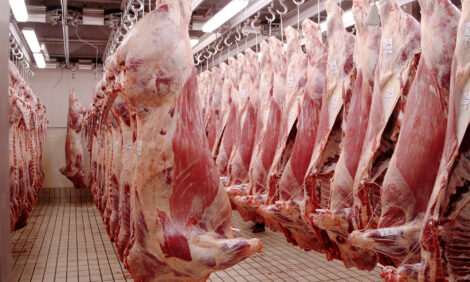



Editorial: Korean Beef Industry Faces Crisis
SOUTH KOREA - Korean agriculture faces a crisis. The pressure to open the market is increasing, and yet Korean agricultural competitiveness is at a standstill.The disputes about U.S. beef imports, which have increased because of the bone slivers that were found in shipped beef, call for a more fundamental solution for the future of Korea's agriculture. Even without U.S. beef imports in the picture, the domestic beef market is already open. Beef imported from Australia and New Zealand occupies 52 percent of the market. If U.S. beef is allowed, imported beef will probably take up 60 percent. If we are blocking beef imports because of bone slivers, it's not protecting our hanwoo (Korean cow) farms.
Currently, hanwoo beef prices are 4.6 times higher than imported beef. It is difficult for most middle-class families to eat this beef. Before U.S. beef imports were banned, the price gap was 3.5 times, but it has widened since then. Because of that, cattle prices are shooting up and everybody is trying to raise more cattle.
However, if the World Organization for Animal Health drops the mad cow disease ban on U.S. beef in May and U.S. beef imports are allowed into Korea, the Korea Rural Economic Institute estimates that prices of cattle will drop by more than 20 percent. In other words, a fluctuation in cattle prices is foreseen. When that time comes, it will be no use blaming consumers who turn their backs on hanwoo. If we keep delaying, damages to beef farmers will increase and we will be unable to avoid a vicious circle. Uncompetitive agriculture and excessive protection has created a tragedy.
Source: Yonhap News


